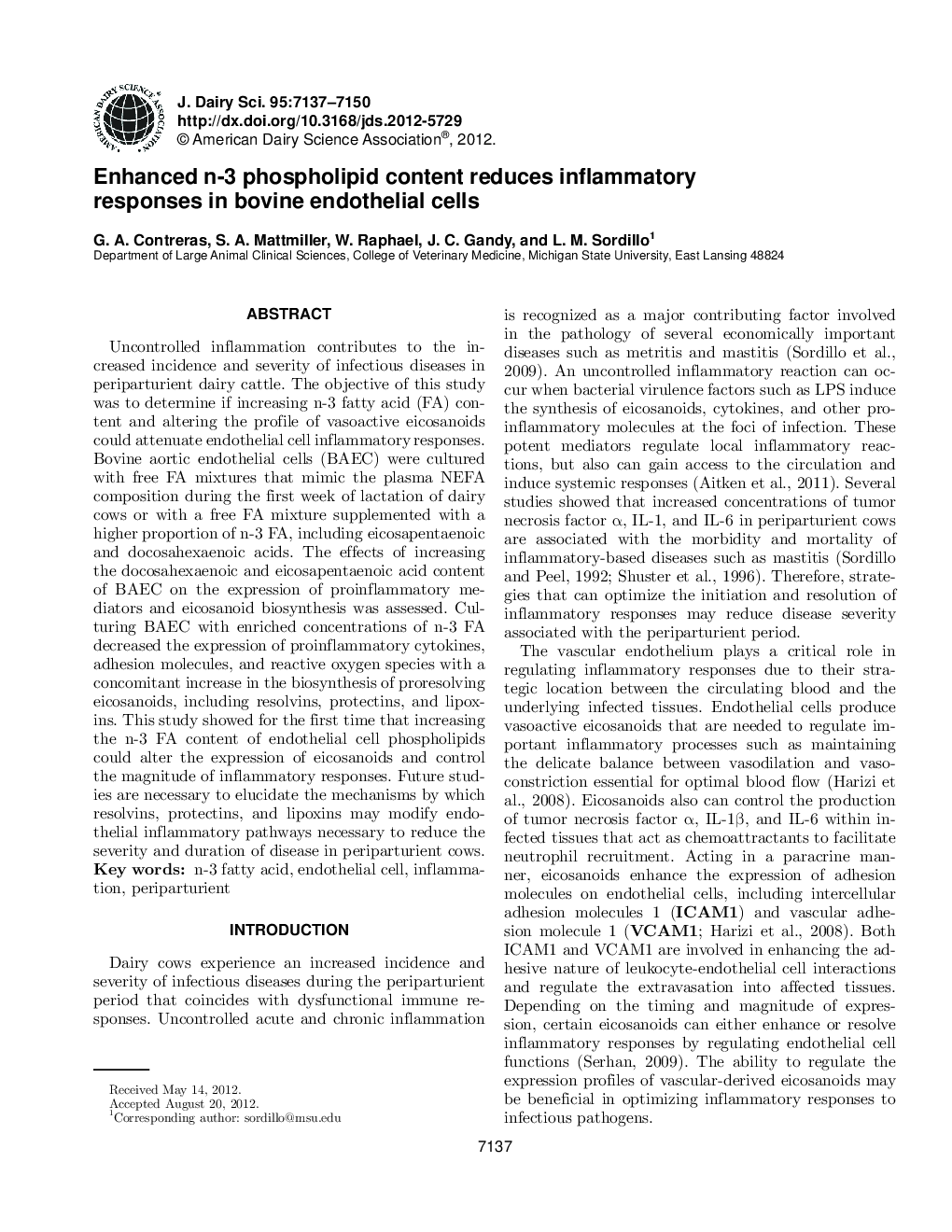| Article ID | Journal | Published Year | Pages | File Type |
|---|---|---|---|---|
| 10978671 | Journal of Dairy Science | 2012 | 14 Pages |
Abstract
Uncontrolled inflammation contributes to the increased incidence and severity of infectious diseases in periparturient dairy cattle. The objective of this study was to determine if increasing n-3 fatty acid (FA) content and altering the profile of vasoactive eicosanoids could attenuate endothelial cell inflammatory responses. Bovine aortic endothelial cells (BAEC) were cultured with free FA mixtures that mimic the plasma NEFA composition during the first week of lactation of dairy cows or with a free FA mixture supplemented with a higher proportion of n-3 FA, including eicosapentaenoic and docosahexaenoic acids. The effects of increasing the docosahexaenoic and eicosapentaenoic acid content of BAEC on the expression of proinflammatory mediators and eicosanoid biosynthesis was assessed. Culturing BAEC with enriched concentrations of n-3 FA decreased the expression of proinflammatory cytokines, adhesion molecules, and reactive oxygen species with a concomitant increase in the biosynthesis of proresolving eicosanoids, including resolvins, protectins, and lipoxins. This study showed for the first time that increasing the n-3 FA content of endothelial cell phospholipids could alter the expression of eicosanoids and control the magnitude of inflammatory responses. Future studies are necessary to elucidate the mechanisms by which resolvins, protectins, and lipoxins may modify endothelial inflammatory pathways necessary to reduce the severity and duration of disease in periparturient cows.
Related Topics
Life Sciences
Agricultural and Biological Sciences
Animal Science and Zoology
Authors
G.A. Contreras, S.A. Mattmiller, W. Raphael, J.C. Gandy, L.M. Sordillo,
